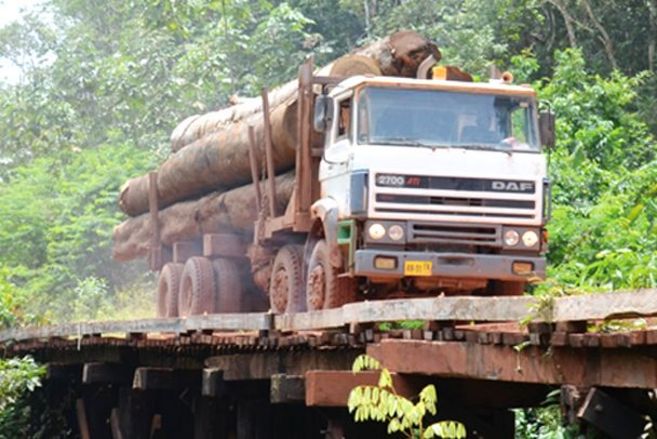Project
Multi-stage assessment of biobased negative emission technologies (BioNET)

Multi-level assessment of Bio-based Negative Emission Technologies - Sub-project 3: Forestry and Silviculture
Climate neutrality is an important long-term goal of climate policy. It requires bringing emissions of greenhouse gases at least into balance with their uptake in sinks. How can forests and forestry contribute to this goal?
Background and Objective
Technologies and concepts for CO2 capture using biomass (biobased negative emission technologies, or NETs for short) are a central element of net-zero policy strategies. They are embedded in agricultural and forestry value chains, can be implemented in a variety of ways and compete with the provision of materials and energy. However, these concepts have not yet been realised and are characterised by various risks in terms of feasibility and market introduction, among other things because a holistic evaluation that takes local and regional conditions into account has been lacking up to now.
This is where the BioNET project (Multi-level assessment of biobased NETs) comes in and provides a problem-adequate knowledge base for the assessment of biobased NETs in Germany. New social science approaches are combined with established methods of modelling competition for limited biomass, and trade-off analyses. For this purpose, a three-stage approach will be developed:
(1) provision of a transparent and easily accessible database on biobased NETs,
(2) new participatory approaches to explore societal and institutional feasibility, and
(3) development and holistic assessment of national scenarios for biobased NETs taking into account the Sustainable Development Goals (SDGs).
This is to achieve understanding of and confidence in the concepts and processes, and to use stakeholder mobilisation in all project phases to identify and overcome barriers. As a result, possibilities for action for bio-based NETs should be communicated in an adapted manner and political and other decision-makers at different scales, but also scientists, should be empowered to take these appropriately into account in their work and decisions.
Target Group
The target group of the project are decision-makers and other stakeholders who influence investment decisions in bio-based NETs or, conversely, are affected by such decisions.
Approach
The Thünen Institute for Forestry contributes to the overall project by providing the forestry/ silvicultural NET concepts:
- In the first step, different silvicultural management options at stand level and their short-, medium- and long-term effects on carbon stocks and substitution potentials are qualitatively presented, taking into account the respective production risks. The product is a set of indicators of which silvicultural management options can contribute to emission reductions for a given baseline condition.
- Based on this, the individual silvicultural elements are compiled and quantified into strategies coordinated over the lifetime of the stand; this also includes estimating the impacts on costs, yields and values of environmental services. The products are fact sheets on the emissions balance in the individual scenarios over time and their impacts on the yield situation and value of environmental services, as well as a literature review on forestry options for improving the emissions balance.
- Finally, the previously developed strategies are synthesised into scenarios that fit into the baseline conditions in three focus regions. Product are scorecards that inform about regional climate protection and adaptation potentials in the forest, and their economic and socio-ecological consequences.
In addition, we support the project partners in the preparation and implementation of relevant workshops as well as in the development of national NET scenarios and their technical-economic modelling.
Data and Methods
Methodologically, the project relies predominantly on literature analyses and the use of existing models to estimate forest growth and carbon sequestration and storage.
Our Research Questions
The questions posed within the project follow its objective of enabling new participatory approaches to investigating societal and institutional feasibility by providing a transparent and easily accessible database on bio-based NETs:
- How can the diverse and complex existing information on the impacts of forest management options on the carbon budget be condensed and processed in such a way that it is comprehensible to stakeholders with very different backgrounds and also satisfies their information needs?
How can scenarios for bio-based NETs be developed, after feedback from stakeholders, that are practicable, acceptable from a stakeholder perspective and as effective as possible in terms of the carbon budget?
Results
The comparison of different concepts for bio-based carbon dioxide removal in agriculture and forestry, in bio-based building materials and in bioenergy production with carbon capture and storage (BECCS) shows that the temporal dynamics of these concepts differ significantly until 2045. For CO2 removal rates from the atmosphere, concepts to increase natural sinks are characterised by gradually increasing rates, followed by saturation and possibly a decline after a few decades; forestry measures start slowly, and construction projects and bioenergy plants are assumed to have constant annual removal rates during operation, decreasing to zero thereafter. The cost of removing 1 tonne of CO2 from the atmosphere ranges from €8 to €520 per t CO2, reflecting large differences between concepts in both investment and operating costs. This high variability in costs seems to indicate that the more cost-effective concepts should be implemented first. However, when developing implementation strategies, aspects such as economic viability, available resource base, environmental impact, and social and political implications for Germany need to be considered. All of the concepts analysed could be implemented on a scale that would make a significant contribution to Germany's climate neutrality target.
Thünen-Contact

Involved external Thünen-Partners
-
Umweltforschungszentrum
(Halle (Saale), Deutschland) - Deutsches Biomasseforschungszentrum (DBFZ)
(Leipzig, Deutschland)
Funding Body
-
Federal Ministry of Education and Research (BMBF)
(national, öffentlich)
Duration
1.2022 - 12.2024
More Information
Project funding number: 01LS2107C
Project status:
finished
Publikationen
- 0
Wollnik R, Borchers M, Seibert R, Abel S, Herrmann P, Elsasser P, Hildebrandt J, Meisel K, Hofmann P, Radtke K, Selig M, Kazmin S, Szarka N, Thrän D (2024) Dynamics of bio-based carbon dioxide removal in Germany. Sci Rep 14:20395, DOI:10.1038/s41598-024-71017-x
- 1
Wollnik R, Borchers M, Seibert R, Abel S, Herrmann P, Elsasser P, Hildebrandt J, Mühlich M, Eisenschmidt P, Meisel K, Henning P, Radtke KS, Selig M, Kazmin S, Thrän D, Szarka N (2023) Factsheets for bio-based carbon dioxide removal options in Germany. Göttingen: OpenAgrar, 1 p, DOI:10.48480/x293-8050
- 2
Wollnik R, Borchers M, Seibert R, Abel S, Herrmann P, Elsasser P, Hildebrandt J, Mühlich M, Eisenschmidt P, Meisel K, Henning P, Radtke KS, Selig M, Kazmin S, Thrän D, Szarka N (2023) Steckbriefe für biobasierte Kohlenstoffdioxid-Entnahmeoptionen in Deutschland. Göttingen: OpenAgrar, 1 p, DOI:10.48480/tga8-t109







